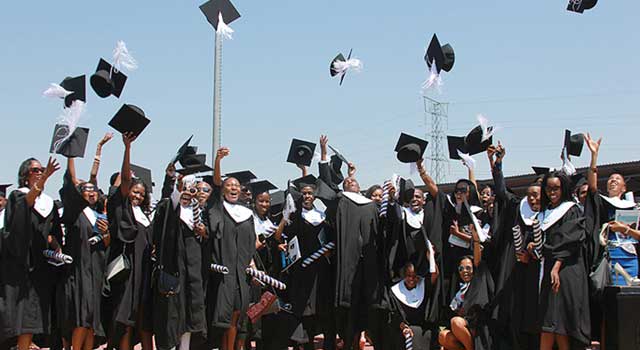- Graduates less competent
- Boitekanelo graduates more employable
TSAONE SEGAETSHO
The biggest center of higher learning in Botswana, the University of Botswana, could be the major source of unemployment in this country, as it seen to produce unemployable graduates- a yet to be publicized audit has found.
The research study produced by three University of Botswana Social Science lectures; Dr Langtone Maunganidze, Dr Gabriel Faimau and Roy Tapera seen by The Botswana Gazette, compared UB to Boitekanelo College as an example and found that the latter is better than the former in producing employable graduates.
The audit report titled “Graduate employability in Botswana: Challenges and prospects” sought to look at coursework, competency, respond to practicals and programmes of the graduates of the two institutions-in all these aspects, UB was second best to its nine year old locally owned counterpart. Dr Langtone Maunganidze, Dr Gabriel Faimau and Roy Tapera are the authors of the damning 30 page study which was commissioned by Human Resource Development Curriculum (HRDC).
“Unlike Boitekanelo College, which specializes in public health, University of Botswana was blamed for producing graduates deficient in skills necessary for competency and competitiveness. Our findings confirm results of previous studies elsewhere in observing the importance of accessing appropriately skilled graduates as a major challenge for most prospective employers,” the report says in part.
According to the report, when looking at patterns of graduate employability Boitekanelo College alumni were more likely to gain employment than most of their UB counterparts, particularly those in Social Sciences and Humanities. Also Boitekanelo graduates are seen as more likely to get a job since their curriculum has work-related attachment which employers consider as work experience when compared to their UB counterparts according to the three lectures research.
In their study three lectures concluded that “The case of linking educational outcomes and graduate employability in the development of college curricula remain a recalcitrant problem. Thus internship programme although confronted by numerous structural challenges, has been adopted as one way of reducing vertical mismatch,” says the UB lectures.
The lack of sufficient communication or dialogue between the industry and universities also plays a major role in the skills mismatch, also, the limited industrial growth and economic diversification which have reduced the demand for knowledge and technology intensive jobs has become a one of the major reasons.
Another catch is that, there also exists unemployable yet over qualified graduates. “The recent phenomenal growth in tertiary institutions and particularly private college offering certificate and diploma programs has created an ‘over-educated’ citizenry and such imbalances or ‘misfits’ in the economy limits the youth’s chances of being hired,” the study said.
Graduate unemployment, which currently stands around 20 percent, remains the biggest challenge to Botswana’s economy and the education sector has been blamed for that. In higher education, the 34 year old UB is supposed to be the crème dela crème of tertiary education in Botswana as government makes sure that the university enrolls one of the best students from secondary school and is always investing more money and resources in it. The Ministry Education got the lion’s share of P10.64 billion(28.8 percent) in this year’s Recurrent Budget ,and UB received subventions.

